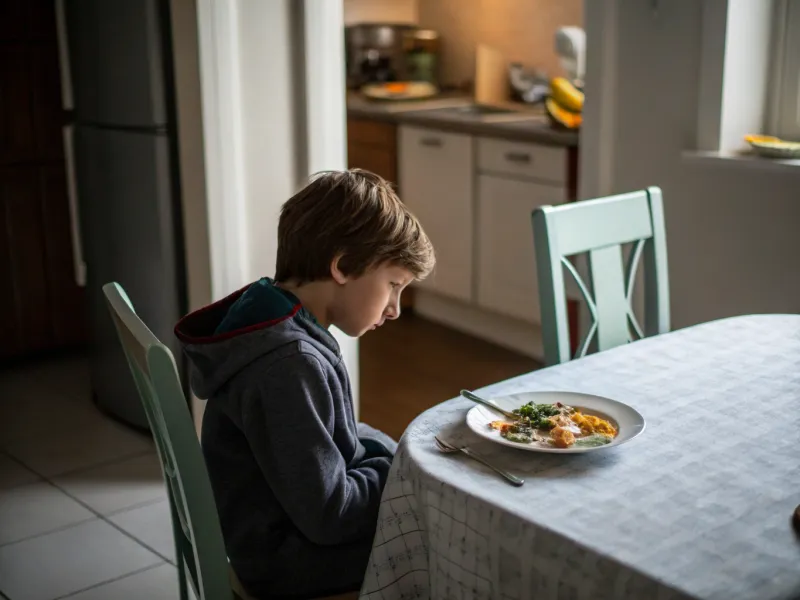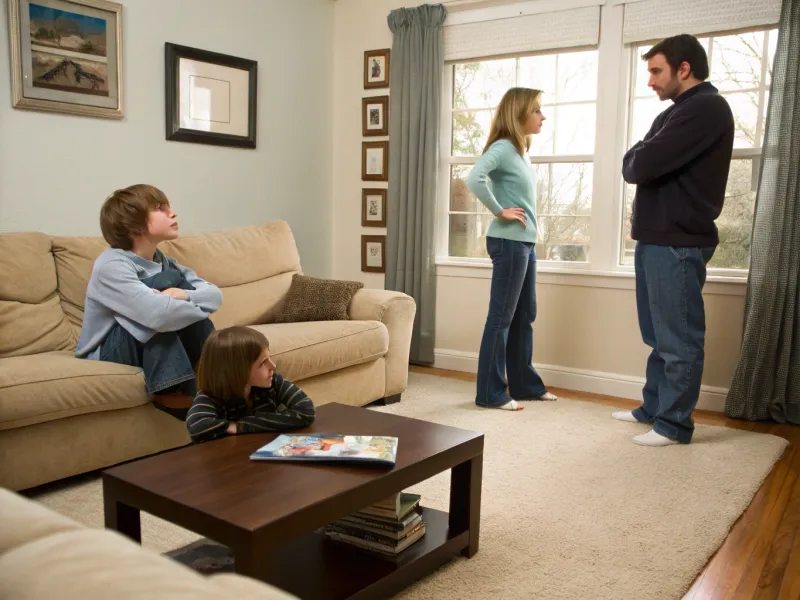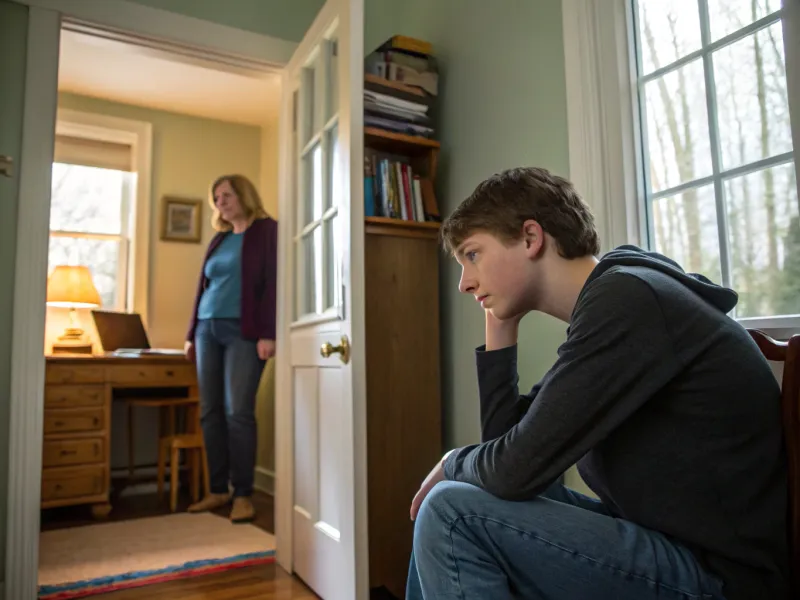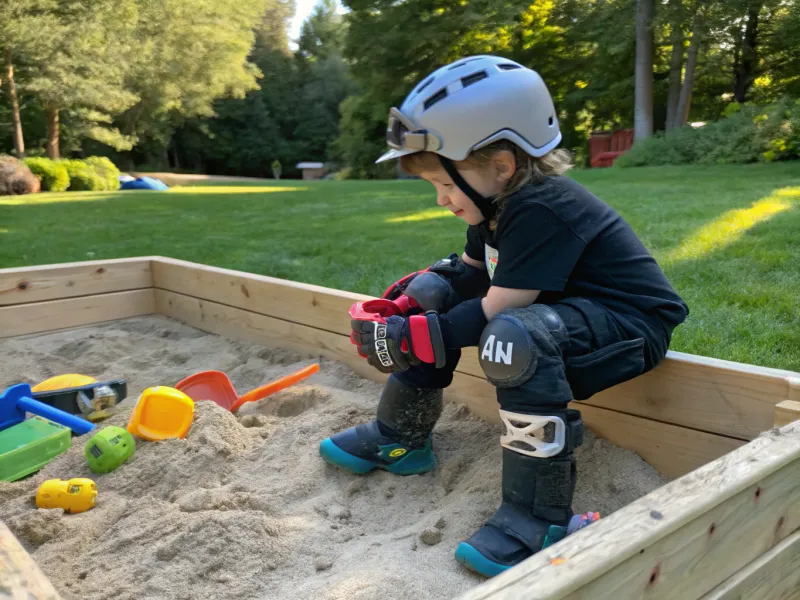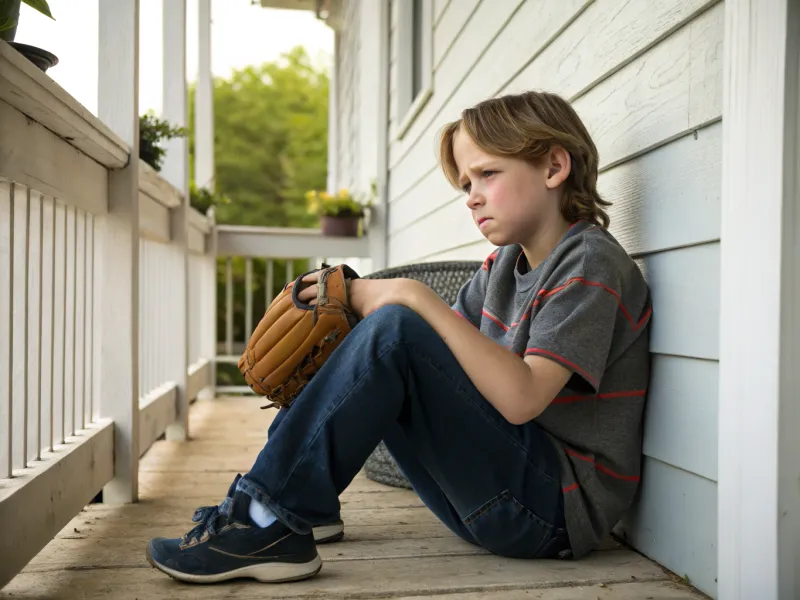So, we’ve all had moments when our parents just didn’t “get” us, right? Growing up, we often put our folks on pedestals, but as adults, some of us start noticing those little quirks—perhaps even mistakes—that weren’t so obvious before.
Parenting shapes us into the humans we are today and often can cause children to feel resentment towards their parents once they grow up and start living independently.
These are the most common mistakes parents make because of which children can’t stand them as adults:
1. Overbearing Control
Remember that feeling when your folks seemed to hover over every decision you tried to make, like they were controlling your life? Yeah, that’s a common complaint. In their quest to ensure you didn’t make mistakes, sometimes they forgot to let you actually live! It’s like, how can anyone learn if they never get the chance to try and maybe fail?
Of course, they likely meant well, wanting to shield you from the world’s harsh realities. But constantly being told what you can and cannot do often leaves a lasting impact. As kids grow up, they might find themselves resenting this lack of freedom.
Maybe it’s the gentle nudges that felt like constant shoves or the never-ending questions that felt more like interrogations. Over time, these controlling actions can feel like chains, even if they were forged with love. Many grow up wishing their parents had trusted them a bit more.
2. Unrealistic Expectations
Did you ever feel like your parents had a checklist for your life that only they knew about? It’s like they were constantly ticking boxes, and you were the one running to catch up. This often stems from parents wanting their children to achieve greatness, but sometimes it can feel like a bit too much.
The pressure to excel in academics, sports, and extracurriculars might have been well-intentioned. However, for some, it translates to a childhood spent more in meeting expectations than in self-discovery. The constant pressure can take a toll, morphing into resentment over time.
Parents might not realize how overwhelming it is to live up to such high standards. The innocent dreams of kids can get buried under the weight of these ambitions, leading to a feeling of unfulfilled personal growth. It’s tough when the bar always feels just out of reach.
3. Lack of Emotional Support
Ever felt like you were talking to a wall when trying to express your feelings? Emotional support is crucial, yet some parents struggle to provide it. It’s not always about the big talks, but being there for the little moments that matter.
When parents dismiss emotions or fail to acknowledge them, kids might feel neglected or invalidated. This lack of support can create a chasm that grows with time, leading to resentment. It’s as if every unacknowledged feeling builds a wall between them.
Everyone needs someone to lean on, and when parents miss this role, it can sting. Emotional absence can make kids feel undervalued, creating a void that lingers into adulthood. This gap can become a source of frustration, especially when emotional support is needed but not found.
4. Comparisons to Siblings or Others
Ever felt like you were in a constant competition with your siblings or even the neighbor’s kid? It’s tough when parents unintentionally pit you against others in their quest for motivation.
This constant comparison can feel like a shadow that you can’t shake off. It might seem like a harmless push towards achieving more, but over time, it can erode self-esteem and breed resentment. When kids feel like they can never measure up, it’s a heavy burden to carry.
Imagine always being reminded of someone else’s successes rather than being celebrated for your own achievements. It’s a struggle when your unique qualities go unnoticed, and overshadowed by someone else’s benchmark. This can leave a lasting impact, fostering feelings of inadequacy.
5. Lack of Quality Time
Remember those days when you just wanted some one-on-one time, but your parents were always too busy? Quality time is a gift that sometimes gets lost amidst life’s hustle and bustle.
When parents aren’t around for those small yet significant moments, it can feel like they’re missing out on your life. This absence can lead to feelings of neglect, even if unintentional. The lack of shared experiences can create a distance that’s hard to bridge later.
It’s not just about being present, but being engaged and interested in each other’s lives. Without this connection, kids might grow up feeling like they missed out on a key relationship, leading to feelings of resentment. Those missed conversations and shared laughs matter more than parents might realize.
6. Overemphasis on Achievement
Ever felt like your worth was measured by your report card or trophies? The emphasis on achievement can sometimes overshadow everything else. While accomplishments are important, they shouldn’t define who you are entirely.
When parents focus too much on results, it can lead to a feeling of being valued only for successes. This pressure often leads to stress and anxiety, making children miss out on the joy of learning and exploring.
It’s important for kids to feel appreciated for who they are, not just what they achieve. This balance is essential, and when it’s missing, it can turn into resentment. Everyone wants to be seen and loved for their true selves, beyond the accolades and awards.
7. Inconsistent Rules and Discipline
One minute you’re told one thing, and the next it’s something completely different—sound familiar? Inconsistent rules can leave kids feeling confused and frustrated. It’s like trying to navigate a moving maze.
Consistency is key in teaching kids right from wrong. When rules change frequently or depend on a parent’s mood, it can create an unstable environment. Over time, this inconsistency can lead to resentment, as children struggle to understand expectations.
Kids thrive on routine and clear boundaries. Without them, it can feel chaotic and unsettling, leading to a lack of trust in parental guidance. This can foster an environment where resentment grows, as children feel they can never quite grasp what’s expected of them.
8. Unwillingness to Apologize
Ever wished your parents would just say those three little words: “I am sorry”? Admitting mistakes is hard, even for parents. But when they refuse to apologize, it can leave kids feeling undervalued.
Parents are human too, and they make mistakes like everyone else. Acknowledging these errors shows humility and respect for the child’s feelings. When apologies don’t come, it can foster a sense of injustice and hurt.
Kids remember these moments, and the lack of acknowledgment can build resentment over time. It’s essential for parents to model that it’s okay to make mistakes and more importantly, to own up to them. This can help mend small rifts before they grow into larger issues.
9. Lack of Privacy
Ever felt like your personal space was just a suggestion, not a right? Lack of privacy is a common grievance among kids. Parents might mean well, but constant intrusions can feel suffocating.
Privacy is essential for personal growth and independence. When parents don’t respect this, it can lead to feelings of mistrust. Kids start to feel like they have to hide parts of themselves just to maintain some semblance of personal space.
Over time, this lack of privacy can lead to resentment. It’s crucial for parents to understand the importance of giving kids room to breathe and develop their own identity. A little trust goes a long way in building a healthy parent-child relationship.
10. Overprotection
Did your parents ever wrap you in metaphorical bubble wrap? Overprotection is often a sign of love, but it can feel stifling. Being overly guarded can keep kids from experiencing life fully.
While it’s natural for parents to worry, there’s a fine line between protection and restriction. Kids need to learn from their own experiences, even if it means scraping a knee or two. When parents are too protective, it can lead to a lack of confidence and independence.
This constant sheltering can foster feelings of resentment. Kids might grow up feeling like they missed out on key experiences. It’s important to let them explore the world at their own pace, learning valuable lessons along the way. Resentment often stems from being shielded from the very things that help them grow.
11. Dismissal of Interests
Remember the excitement you felt discovering a new hobby, only to have it brushed aside by your parents? That dismissal can sting. When parents don’t show interest in their children’s passions, it can feel like rejection.
Whether it’s art, sports, or music, these interests help shape a child’s identity. When parents dismiss them, it can feel like they’re dismissing a part of who you are. It’s disheartening, and over time, it can create a rift.
Parents might not realize the impact of their words or actions. A simple acknowledgment or encouragement can make all the difference. When kids feel their interests are valued, it boosts their self-esteem and strengthens the parent-child bond. Without this support, resentment can quietly build.
12. Broken Promises
Ever been promised something and then left waiting in vain? Broken promises can leave a lasting impact. It’s like building up hope just to see it crumble. Parents might have the best intentions, but failing to follow through can lead to mistrust.
Kids hold onto promises tightly. They’re seen as commitments, and when they’re broken, it can feel like a personal betrayal. Over time, this can erode trust and lead to resentment.
It’s important for parents to be mindful of the promises they make. Keeping small commitments can have a big impact on a child’s sense of security and trust. When promises are consistently broken, it sends a message that the child’s feelings don’t matter, fostering resentment.
13. Neglecting Self-Expression
Ever felt like you couldn’t express who you truly are because of your parents? It’s tough when self-expression is stifled. Parents might have certain expectations or fears, but kids need the freedom to be themselves.
Whether it’s through clothing, hair, or hobbies, self-expression is a key part of personal identity. When parents suppress this, it can feel like they’re dismissing who you are. This lack of acceptance can lead to feelings of frustration and resentment.
Kids want to be seen and accepted for who they are, not who their parents want them to be. Allowing self-expression fosters confidence and individuality. When this is lacking, it can create a gulf between parents and children, leading to resentment as they grow older.
14. Favoritism
Ever felt like a sibling or another child was the favorite? Favoritism can be a hard pill to swallow. It’s natural for parents to connect differently with each child, but when it feels imbalanced, it can hurt.
Kids are perceptive, and they notice when one sibling receives more attention, praise, or affection. This perceived favoritism can lead to feelings of inadequacy and resentment. Over time, it can create a divide between siblings and parents.
Parents might not realize the impact of their actions. It’s important to ensure each child feels equally loved and valued. When favoritism is at play, it can strain family relationships, leading to lasting resentment as kids grow up.
15. Belittling or Criticism
Ever felt like your parents only pointed out the negatives? Constant criticism can be demoralizing. Parents might think they’re helping by pointing out flaws, but for kids, it can feel like nothing is ever good enough.
Constructive feedback is important, but it needs a balance. When criticism overshadows praise, it can chip away at self-esteem. Kids need to know their efforts are recognized and appreciated.
Over time, this constant belittling can lead to resentment. It’s essential for parents to communicate with kindness and understanding. Everyone makes mistakes, and kids need to know they’re valued beyond their faults. When criticism becomes a dominant theme, it fosters a sense of inadequacy and resentment.
16. Not Listening or Understanding
Ever tried to share something important only to be met with distracted nods? Not feeling heard can be frustrating. Parents might be busy, but kids need to know their voices matter.
Listening is more than just hearing words; it’s about understanding and empathizing. When parents don’t actively listen, it can feel like they don’t care. This lack of connection can lead to feelings of isolation and resentment.
It’s crucial for kids to feel valued and understood. When parents make an effort to listen, it strengthens the bond and fosters trust. Without this, kids might grow up feeling unheard and unimportant, leading to resentment as they seek validation elsewhere.
17. Inadequate Preparation for Adulthood
Ever felt thrown into the deep end when you hit adulthood? Some parents might focus so much on academic achievements that they forget to prepare kids for real-life challenges.
Basic skills like managing finances, cooking, or even doing laundry are essential. Without these life lessons, adulthood can feel overwhelming. Kids might resent their parents for not equipping them with practical skills.
Parents might underestimate the importance of teaching these skills. It’s not just about academics, but preparing kids for a balanced, independent life. When this preparation is lacking, it can lead to frustration and resentment as kids navigate adulthood unprepared.
18. Ignoring Mental Health Needs
Ever felt like your mental health concerns were brushed aside? Ignoring mental health needs can have long-term effects. Parents might not always recognize the importance of addressing these issues.
Mental health is as important as physical health. When parents dismiss concerns, it can make kids feel invalidated. Over time, this neglect can lead to resentment and hinder emotional well-being.
It’s crucial for parents to be aware and supportive of mental health needs. Recognizing and addressing these issues can make a significant difference. When ignored, it not only affects the child’s current state but can lead to lingering resentment into adulthood.
19. Imposing Their Dreams
Ever felt like you were living someone else’s dream? Parents might have certain aspirations for their kids, but it’s important to let them forge their own path.
Imposing dreams can feel like a heavy burden. Kids might go along with it out of respect or obligation, but it can lead to feelings of resentment. They need the freedom to explore their own interests and passions.
Parents should encourage exploration rather than dictating a path. When kids feel pressured to fulfill their parents’ dreams, it can lead to frustration. It’s essential to support their journey, not dictate it, to ensure they grow into their true selves.
20. Overemphasis on Traditions
Ever felt trapped by traditions you didn’t connect with? While traditions hold value, they shouldn’t overshadow personal beliefs and preferences. It’s vital to respect a child’s individuality.
Parents might feel pride in passing down traditions, but enforcing them can lead to resentment. Kids need the space to embrace or question them, finding their own place within or outside these customs.
A balance between tradition and individuality is key. When traditions are imposed without question, it can feel suffocating. Kids might grow up feeling disconnected, fostering resentment towards cultural or familial expectations.
21. Parental Hypocrisy
Ever caught your parents not practicing what they preach? Hypocrisy can be confusing and frustrating. Kids look up to their parents for guidance, and when actions don’t match words, it can erode trust.
Whether it’s about honesty, hard work, or kindness, consistency matters. When parents fail to model these values, it can create a sense of disappointment. Kids learn by example, and hypocrisy can send mixed messages.
Over time, this inconsistency can lead to resentment. Kids need to see alignment between what parents say and do. It builds trust and sets a strong foundation for their own values. When this is missing, it leaves room for confusion and frustration.
22. Lack of Encouragement
Ever felt like your efforts went unnoticed? Lack of encouragement can be disheartening. Kids thrive on positive reinforcement. It boosts confidence and motivation.
When parents fail to acknowledge achievements, it can feel like nothing is ever good enough. This lack of support can lead to feelings of inadequacy and resentment. Kids need to know their hard work is appreciated.
Encouragement doesn’t have to be lavish. Simple words of support can make all the difference. It strengthens the bond and empowers kids to believe in themselves. Without it, they might grow up feeling undervalued and resentful.
23. Financial Control
Ever felt like your wallet was under lock and key? Financial control can feel restrictive. Even with the best intentions, parents might hold too tightly to the financial reins.
Financial independence is a crucial step towards adulthood. When parents exert too much control, it can hinder a child’s growth. This control can lead to resentment as kids struggle to manage their own finances.
Parents should guide rather than dictate financial decisions. It’s about teaching responsibility while allowing independence. When kids feel financially trapped, it can strain the parent-child relationship, leading to long-term resentment.
24. Judgmental Attitude
Ever felt like your choices were constantly under scrutiny? A judgmental attitude can be tough to handle. Parents might think they know best, but it’s important to respect their child’s individuality.
Constant judgment can feel like an attack on personal choices. It can lead to feelings of inadequacy and resentment. Kids need the freedom to learn from their own experiences, mistakes included.
Parents should offer guidance without imposing judgment. Creating a safe space for open conversation fosters trust and understanding. Without this, kids might grow up feeling misunderstood and resentful, seeking acceptance elsewhere.
25. Lack of Affection
Ever felt like a hug was a rare commodity? Lack of affection can leave kids feeling unloved. Affection is a vital part of building a strong, supportive relationship.
When parents don’t express love physically or verbally, it can create a sense of distance. Kids might feel like their emotional needs are unmet, leading to feelings of resentment.
Affection isn’t just about grand gestures; it’s about everyday expressions of love. A simple hug or kind word can strengthen bonds and provide reassurance. Without it, kids might grow up feeling isolated and disconnected.
26. Neglecting Child’s Opinions
Ever felt like your voice didn’t matter? Neglecting a child’s opinions can lead to feelings of insignificance. Kids need to feel their thoughts and perspectives are valued.
When parents dismiss or overlook their opinions, it can erode self-worth. It sends a message that their ideas don’t count, leading to frustration and resentment. Kids want to contribute and feel heard.
Encouraging open dialogue and valuing their input fosters confidence and mutual respect. It’s important for kids to know their opinions matter. Without this validation, they might grow up feeling undervalued and resentful.
27. Lack of Consistency in Parenting
Ever felt like you were navigating quicksand with shifting rules? Lack of consistency in parenting can be confusing. Kids benefit from clear, consistent boundaries.
When parents change rules frequently, it creates uncertainty. This inconsistency can lead to feelings of insecurity and resentment. Kids need stability to feel safe and understood.
Consistent parenting fosters trust and respect. It helps kids understand expectations and consequences. Without it, they might grow up feeling unsure and frustrated, leading to resentment as they seek stability elsewhere.
28. Being Dismissive of Friendships
Ever felt like your friends were judged too harshly? Parents might not always see the value in certain friendships, leading to conflicts. Friends play a critical role in a child’s social development.
When parents dismiss or disapprove of friendships without understanding, it can lead to resentment. Kids might feel their social choices are undermined, creating tension. It’s important for parents to respect their child’s social circles.
Open communication and understanding can bridge the gap. Parents should aim to understand rather than dismiss. When kids feel their friendships are respected, it strengthens trust and reduces resentment. Without this, they might grow up feeling isolated and misunderstood.
29. Overreaction to Mistakes
Ever accidentally messed up and faced a disproportionate response? Overreaction to mistakes can be overwhelming. Parents might think they’re teaching a lesson, but it can feel like a harsh critique.
Mistakes are part of learning. When parents overreact, it can lead to fear and anxiety. Kids might become hesitant to try new things, worried about the consequences of failure.
It’s important for parents to respond with understanding and calmness. Encouraging kids to learn from mistakes fosters resilience and confidence. When overreactions become the norm, it can lead to resentment as kids feel unfairly criticized.
30. Lack of Freedom to Choose
Ever felt like your choices were made for you? Lack of freedom to choose can be stifling. Parents might believe they know best, but kids need the autonomy to make their own decisions.
Whether it’s clothing, hobbies, or future plans, having a say in their own lives is crucial. When parents dictate choices, it can lead to feelings of frustration and resentment. Kids want to explore their own paths.
Allowing freedom to choose fosters independence and confidence. It shows trust and respect for their individuality. Without it, kids might grow up feeling controlled and resentful, seeking freedom elsewhere.
31. Ignoring Personal Boundaries
Ever had your private space invaded without warning? Ignoring personal boundaries can be frustrating. Parents might not always recognize the importance of respecting their child’s space.
Personal boundaries are key to healthy relationships. When parents disregard them, it can lead to feelings of mistrust and resentment. Kids need their own space to grow and feel secure.
Respecting personal boundaries fosters trust and respect. It shows consideration for their autonomy and individuality. Without this respect, kids might grow up feeling violated and resentful, seeking privacy elsewhere. This can strain the parent-child relationship over time.






